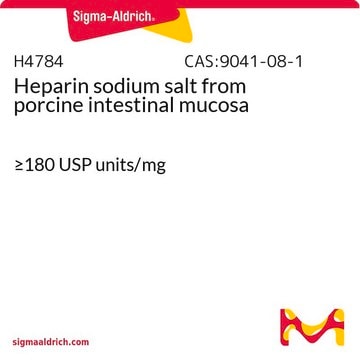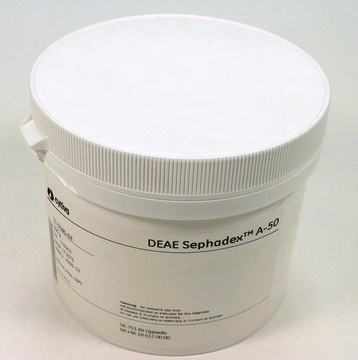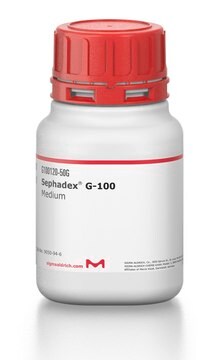I6505
Diethylaminoethyl–Sephacel®
aqueous ethanol suspension, 40-160 μm (wet), exclusion limit ~1,000,000 Da
Synonym(s):
DEAE-Sephacel®
About This Item
Recommended Products
form
aqueous ethanol suspension
Quality Level
technique(s)
activity assay: suitable
particle size
40-160 μm (wet)
pore size
~1,000,000 Da exclusion limit
pH
2—12
capacity
100-140 μeq/mL, gel
storage temp.
2-8°C
SMILES string
OC[C@@H]1O[C@@H](O[C@H]2[C@@H](O)[C@H](O)[C@@H](O)O[C@H]2CO)[C@@H](O)[C@H](O)[C@H]1O
InChI
1S/C12H22O11/c13-1-3-5(15)6(16)9(19)12(22-3)23-10-4(2-14)21-11(20)8(18)7(10)17/h3-20H,1-2H2/t3?,4?,5?,6?,7?,8?,9?,10-,11?,12+/m1/s1
InChI key
GUBGYTABKSRVRQ-WFVLMXAXSA-N
General description
Application
- in the purification of media samples by ion-exchange chromatography
- in the isolation of glycosaminoglycans (GAG) from cultured animal cells
- in the purification of cytotoxic fractions from Tritrichomonas foetus isolates
Physical form
Legal Information
related product
Signal Word
Warning
Hazard Statements
Precautionary Statements
Hazard Classifications
Flam. Liq. 3
Storage Class Code
3 - Flammable liquids
WGK
WGK 1
Flash Point(F)
129.2 °F
Flash Point(C)
54 °C
Choose from one of the most recent versions:
Already Own This Product?
Find documentation for the products that you have recently purchased in the Document Library.
Our team of scientists has experience in all areas of research including Life Science, Material Science, Chemical Synthesis, Chromatography, Analytical and many others.
Contact Technical Service









